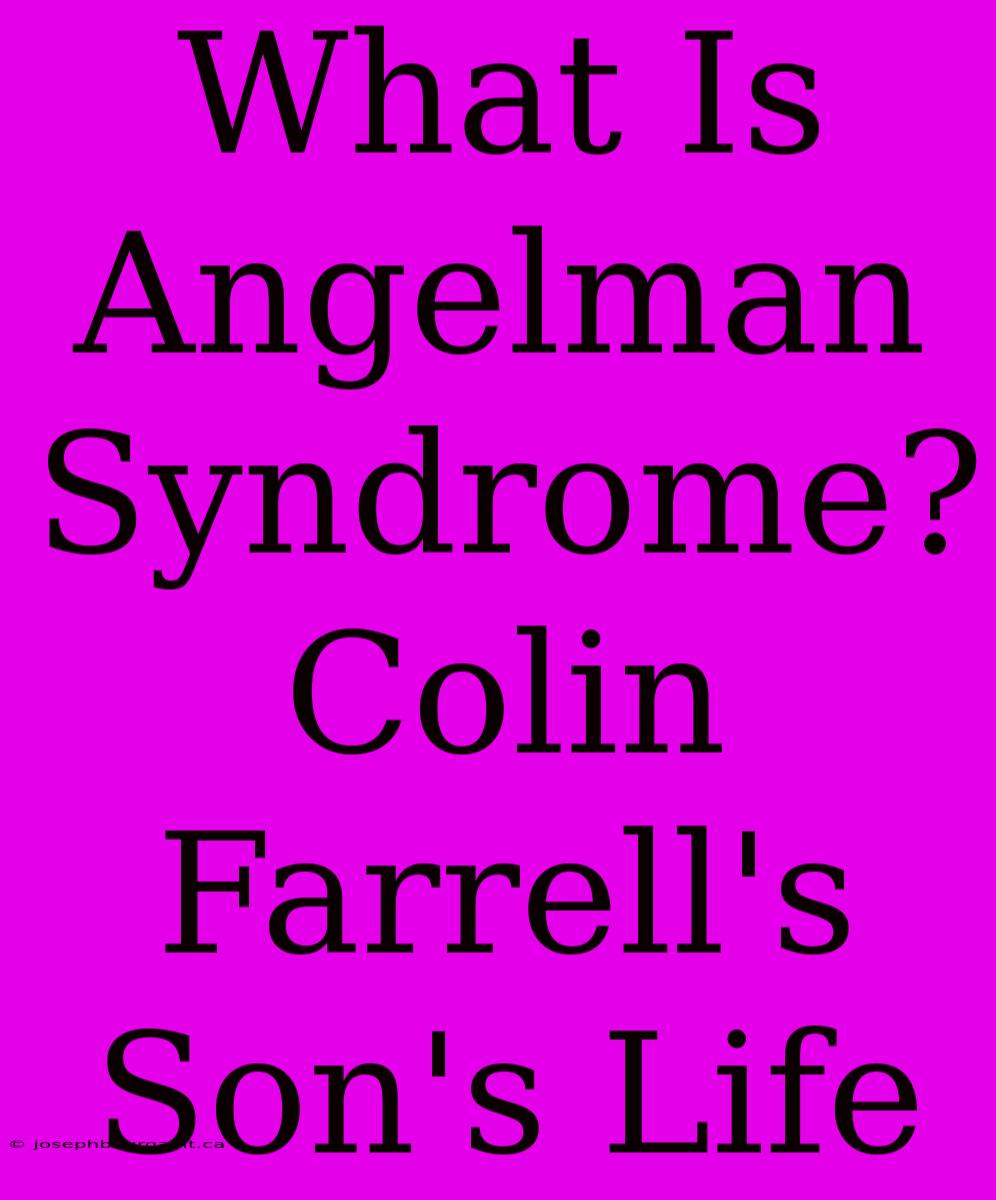What Is Angelman Syndrome? Understanding Colin Farrell's Son's Life
Angelman syndrome (AS) is a rare genetic disorder that affects the nervous system, causing developmental delays, intellectual disability, and physical and behavioral challenges. The syndrome is caused by a deletion or inactivation of a gene called UBE3A on chromosome 15. This gene is responsible for producing a protein that is essential for normal brain development and function.
While there is no cure for AS, early intervention and support can help individuals with the condition live fulfilling lives. This article delves into the complexities of Angelman syndrome, exploring its causes, symptoms, and potential treatments while shedding light on the life of Colin Farrell's son, James, who lives with the condition.
Understanding the Causes and Symptoms
Angelman syndrome can occur due to various genetic changes:
- Deletion of the UBE3A gene: This is the most common cause, affecting around 70% of individuals with AS.
- Uniparental disomy: This happens when a child inherits two copies of chromosome 15 from the same parent.
- Mutations in the UBE3A gene: These mutations can impair the gene's function.
- Imprinting defects: These can disrupt the normal expression of the UBE3A gene.
Common Symptoms of Angelman Syndrome:
- Developmental delays: Individuals with AS often experience significant delays in reaching developmental milestones, including walking, talking, and sitting up.
- Intellectual disability: This varies in severity, but individuals with AS usually have a moderate to severe intellectual disability.
- Characteristic facial features: These include a wide mouth, a pointed chin, and widely spaced eyes.
- Seizures: These are common in individuals with AS, typically beginning in early childhood.
- Movement and balance problems: Individuals may have difficulty with coordination, balance, and walking.
- Happy demeanor and frequent smiling: This is one of the most recognizable features of AS, with individuals often exhibiting a cheerful and happy disposition.
- Speech difficulties: Most individuals with AS have difficulty speaking, with some unable to communicate verbally.
- Sleep disturbances: People with AS often have sleep problems, including insomnia.
- Hyperactivity: Individuals with AS may show signs of hyperactivity and have difficulty paying attention.
Colin Farrell's Son: A Story of Resilience
Colin Farrell's son, James, was diagnosed with Angelman syndrome at the age of two. Despite the challenges of the condition, James has been able to thrive with the support of his family and professionals.
Farrell has been open about his son's condition, using his platform to raise awareness and advocate for individuals with AS. He has spoken about the importance of early intervention, emphasizing the need for specialized therapies and educational programs. He has also highlighted the incredible joy and love that James brings into his life.
James' story exemplifies the strength and resilience that individuals with Angelman syndrome can possess. His journey highlights the importance of finding joy and purpose, even in the face of significant challenges.
Living with Angelman Syndrome: Hope and Support
While there is no cure for Angelman syndrome, early intervention and support can significantly improve the quality of life for individuals with the condition. This includes:
- Therapy: Physical, occupational, and speech therapies can help individuals with AS develop skills, improve their motor abilities, and enhance their communication skills.
- Education: Specialized educational programs can provide individuals with AS with the necessary support and accommodations to thrive academically.
- Medication: Anticonvulsant medications can be used to manage seizures, while other medications can help address sleep problems and hyperactivity.
- Community support: Families and individuals with AS can benefit greatly from connecting with other families and support groups, offering a sense of community and shared experience.
Looking Ahead:
Continued research into Angelman syndrome is ongoing, with scientists working to develop new therapies and interventions. While there is still much to learn about this complex condition, hope and understanding are essential for individuals with AS and their families. Through support, education, and advocacy, we can work towards a future where individuals with AS can live full and fulfilling lives.
Keywords: Angelman syndrome, AS, genetic disorder, UBE3A gene, developmental delays, intellectual disability, seizures, Colin Farrell, James Farrell, therapy, education, medication, community support, advocacy, hope, resilience.

